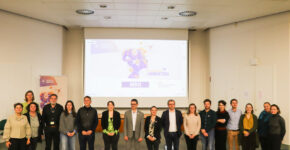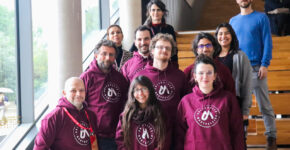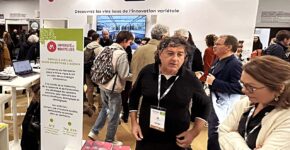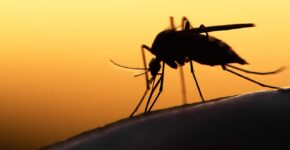Montpellier Innovation Booster (B.I.M.)
The Montpellier Innovation Booster (BIM) is one of the flagship initiatives of Montpellier's University Innovation Cluster (PUI). Acting as a springboard and accelerator, it supports project leaders in structuring and developing innovative initiatives with a view to creating businesses or transferring technology to the socio-economic world.
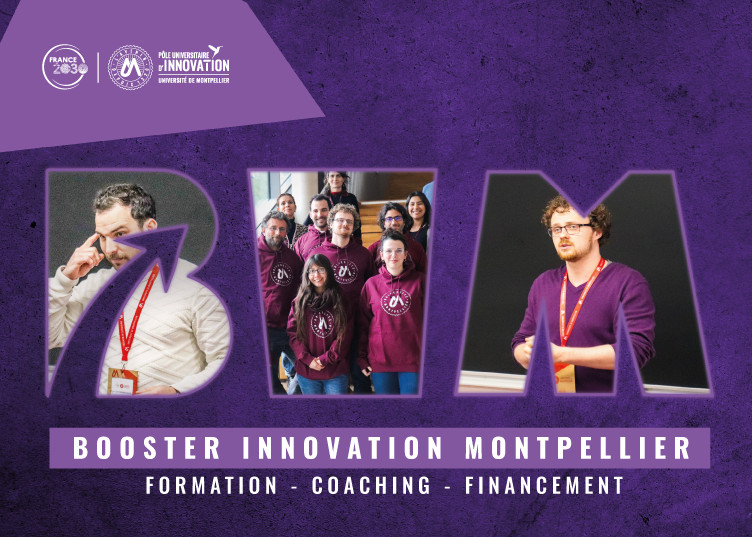
All project leaders participating in BIM receive training dedicated to innovation as well as personalized support aimed at consolidating and accelerating their development, while the most promising initiatives can also benefit from financial support.
What BIM offers
- training and coaching sessions with innovation experts from the University Innovation Cluster (PUI);
- tailored post-training support provided by a mentor from one of the PUI's structures (incubator, technology transfer organization, partnership and commercialization department, etc.);
- financial support, averaging €28,000 for winners;
- networking with other innovative project leaders and with the Montpellier PUI ecosystem;
- the opportunity to apply for the Starthèse Program ofthe Ministry of Higher Education and Research (MESR) (only for doctoral students and young researchers).
BIM process
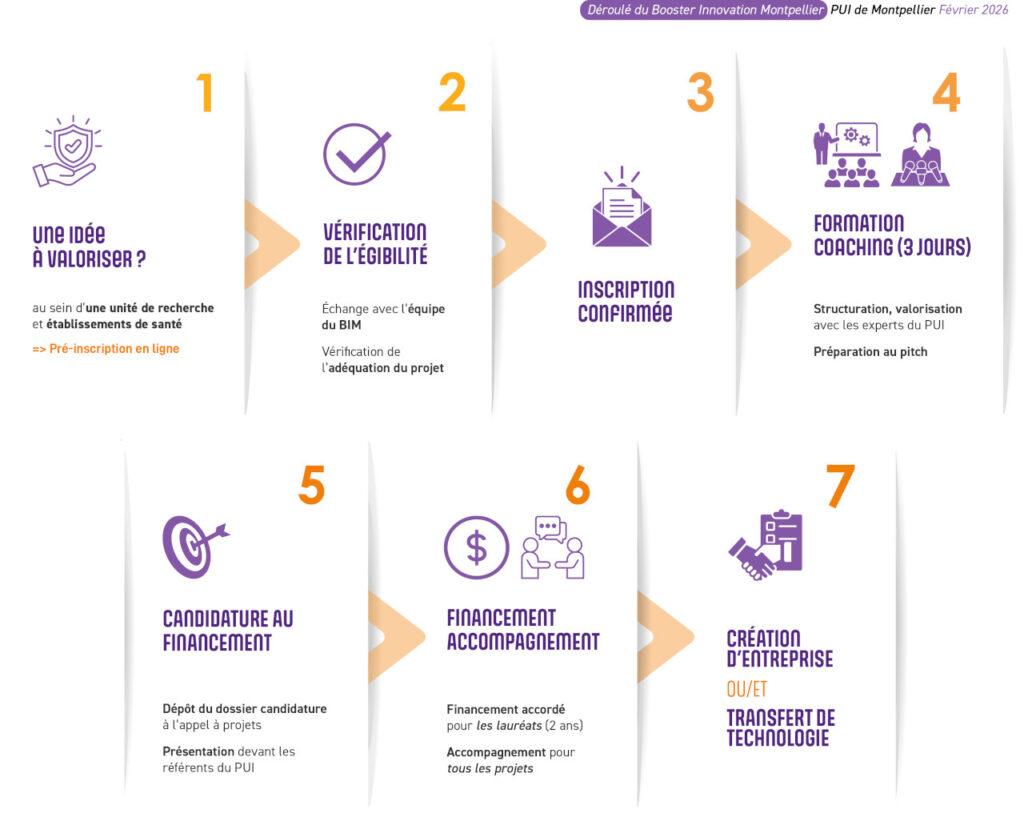
Eligible public
- staff of the PUI's research units and healthcare facilities;
- students, provided that their project is supported by a research structure within the I-SITE Program of Excellence (PEI);
- project leaders outside the I-SITE scope, provided they demonstrate a substantial link with a PEI research unit.
Key figures and impact of BIM
Key figures
- 113 innovative projects supported
- 45 projects funded
- €1,265,700 invested
BIM: A real springboard effect
- 11 start-ups created
- 9 projects in pre-incubation and incubation (SATT– CNRS)
- 3 iLab winners (BPI France)
- 3 iPhD winners (BPI France)
- 5 patents filed
Upcoming BIM sessions
- BIM, May 19, 20, 21, 2026 – Registration deadline: April 24, 2026
Register - BIM October 2026 (dates to be confirmed)
The winners of the Montpellier Innovation Booster
2025 winners
- Comptadventure, Guillaume Dumas (MRM): Developing a mobile app designed to introduce users to accounting in a fun way.
- ISO-HBZ, Laurent Chaloin, and Jean-Marie Peloponese (IRIM): Developing inhibitors of the viral HBZ protein for the treatment of adult T-cell leukemia/lymphoma (ATLL).
- Biofunctool App, Jim Felix-Faure (CIRAD): developing an application for assessing soil health based on the “Biofunctool” methodology.
- BioSanThé, Nicolas SOMMERER (SPO): Developing a local aeroponic tea plant (Camellia sinensis) production chain in
Montpellier, to naturally overproduce high value-added bioactive molecules. - DM Connect, Laure Roux (Nîmes University Hospital): creating an application aimed at improving home care for patients with invasive medical devices.
- GENECAV, Eric Kremer (IGMM: CNRS, UM): design of CAV-2 vectors for gene therapy of numerous retinal diseases.
- GLIOPROFILE, Emmanuelle LE BARS and Jérémy DEVERDUN (CHUM): Artificial intelligence tool for automated segmentation and volumetric monitoring of low-grade glioma
n MRI, aimed at improving clinical management and therapeutic research. - i-Senex, Roger ELOIFLIN (IGMM): Developing an innovative therapeutic approach to inhibit senescence by targeting the pro-inflammatory
pathway induced by cytosolic single-stranded DNA - PEASY, Xavier Garric (IBMM: CNRS, ENSCM): managing male urinary incontinence using a non-adhesive urine disposal device.
- SPECTROME, Mehdi Morchikh (INM: INSERM, CHU M): designing freeze-dried solutions for external quality control of biomarkers for various diseases, particularly neurodegenerative diseases.
- WATERLAND, Sanaa Daakour (IEM): designing biomimetic membranes containing artificial water channels for desalination.
- WERIN, Patrick Sentis (MRM): propose a decision-making tool that automatically generates the most relevant portfolios based on user preferences.
2024 Winners
- DocSimulator, Kevin Yauy, and Emmanuel Guenou (Faculty of Medicine): creating a training platform for structured clinical examinations (SCEs).
- Halt O’Plast, Youen Boennec, and Fanny Sterna (IES: CNRS, UM): reducing human ingestion of microplastics.
- EPINE, Sarah Braga Cohen (IRCGM: INSERM, ICM, UM): developing a predictive test to assess response to anti-PD1/PDL1 immunotherapy in lung cancer patients.
- NEPHROSHAPE, Nicolas Taulet (CRBM: CNRS, UM): preventing kidney damage using fluorescence imaging and artificial intelligence on 3D models.
- ProCONNECT, Noémie RANISAVLJEVIC and Alexandra ALVERGNE (Montpellier University Hospital and ISEM: UM, CNRS, IRD): Designing a biosensor to monitor women's hormone levels, including progesterone, in real time.
- QVD, David SANCHEZ (IES: CNRS, UM): Create a portable device for the early detection of viruses (dengue, chikungunya) based on piezoelectric MEMS (MicroElectroMechanical Systems) in epitaxial quartz, capable of detecting very low viral loads before symptoms appear.
- CURE CMT, David VIRIEUX (ICGM: CNRS, ENSCM, UM): Developing new chemical entities (NCEs) targeting a receptor to treat Charcot-Marie-Tooth disease type 2A, a hereditary peripheral neuropathy for which there is currently no cure.
- PLASMODETECT, Grégoire PASQUIER (Montpellier University Hospital): Design a mobile application incorporating an object detection algorithm to automatically identify Plasmodium species on blood smears, in order to facilitate the diagnosis of malaria, particularly in low-resource areas.
- REVOLVER, Magali GARY-BOBO (IBMM: CNRS, ENSCM, UM): Generating an innovative photosensitizing molecule to visualize and destroy cells infected with human papillomavirus (HPV) via photodynamic therapy (PDT).
- SMARTBAC, Diego CATTONI (CBS: CNRS, INSERM, UM): Developing innovative bacterial encapsulation technology that enables therapeutic bacteria to specifically colonize tumors while evading the immune system, in order to deliver anticancer agents locally in a targeted, safe, and effective manner.
- SONORT AID, Mustapha SEBBANE – Patrick FAFET (Montpellier University Hospital): Proposing non-invasive tools for detecting respiratory pathologies based on respiratory sounds.
2023 Winners
- CLAMPS, Hamza El Jjouaoui (LIRMM: CNRS, UM): creating a 3D printing machine to produce complex silicone structures.
- METHALGUES, Louis Cornette de Saint Cyr (IEM ENSCM, UM, CNRS): developing a bioprocess for recovering value from digestates produced by anaerobic digestion.
- NRJ Verte, Erwan Jean Baptiste (IEM ENSCM, UM, CNRS): generating green hydrogen through water electrolysis.
- Plant Valo, Fangala Hamidou Coulibaly (MIVEGEC: CNRS, IRD, UM): promoting natural extracts for the bioprotection of populations.
- IDDSI recipe app, Caroline Chapolard and Elisa Guillaume (CHU-M): create a mobile app featuring recipes classified according to IDDSI texture levels.
- Inseparable, Dorian Gregoire (CHU M): optimizing relationships between loved ones and caregivers in intensive care using specialized software.
- BsAB SWEEP, Marie-Alix Poul, Ikrame Dadi, Alexandra Lefevre (IRCM: INSERM, ICM, UM): eliminating soluble molecules with pro-tumor activity in the environment of solid tumors via the tumor cells themselves.
- NecroSTOP, Diana Penarete Vargas and Arnault Graindorge (LPHI: IRCM, INSERM, UM): exploring the potential of a protein from Toxoplasma gondii, an intracellular parasite, to prevent the death of the cells it infects.
- THERALAN, Romain Lanotte (IGF: CNRS, UM, INSERM): developing a new class of antibodies targeting HER4 to treat brain tumors.
- OcciCalTherapeutics, Sarah Colombani (PhyMedExp: INSERM, CNRS, UM): developing a preventive treatment for a respiratory condition that occurs during mechanical ventilation in intensive care.
- The Seed Ship, Sophie Spring (MRM: UM): analyzing companies' structured actions and documents using LLM language models and focusing on environmental impact.
2022 Winners
- Picolect, Lisette Ibanez (CEE-M: INRAE, CNRS, InstitutAgro, UM): managing bio-based waste in collective housing.
- CarboZym, Jullien Drone (ICGM: INSERM, ICM, UM): replacing chemical methods with sustainable alternatives using enzyme immobilization.
- Analysis of expression profiles ofleukocyteactivation markers, Anne-Sophie Bedin (PCCEI: UM, INSERM): analyzing leukocyte marker expression profiles in screening and diagnosis in hospitalized patients.
- THOR EYES, Jimmy Teixeira (LMGC: CNRS, UM): designing a 360° video-stereo-correlation device to measure deformation movements on the surface of living beings.
- Low-grade glioma and second-generation mini-brain, Jean-Philippe Hugnot (IGF: CNRS, UM, INSERM): developing a 3D platform to study interactions between tumor cells and neurons, search for biomarkers, and develop new therapies.
- PARXEL, Rémi Vezy (AMAP: IRD, CIRAD, INRAE, CNRS, UM): propose crop simulation tools for companies that develop plot management applications for farmers and agricultural cooperatives.
- OPTICOURSES, Amélie Fuchs (MOISA: UM, InstitutAgro, IRD, INRAE, CIRAD): helping consumers eat better while reducing their environmental impact, without spending more.
